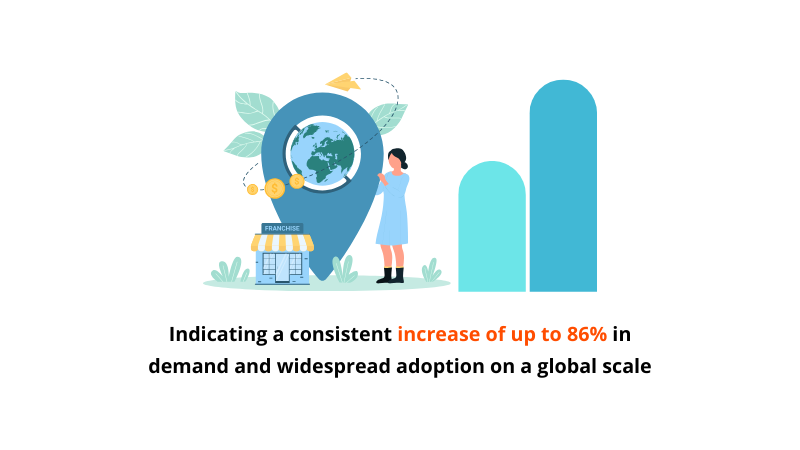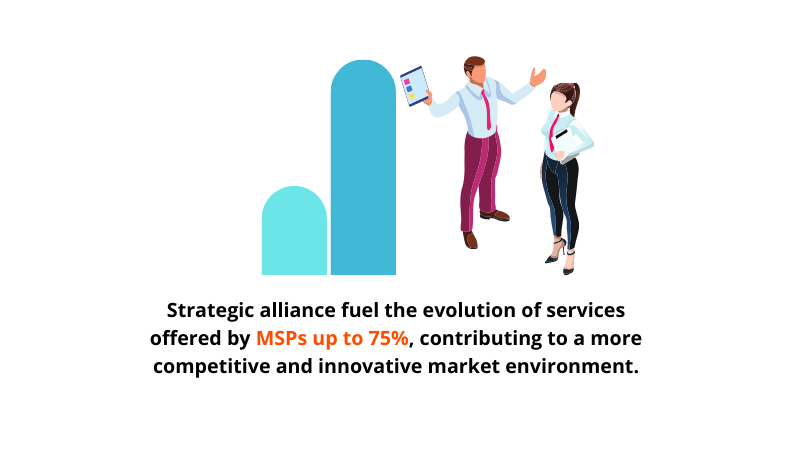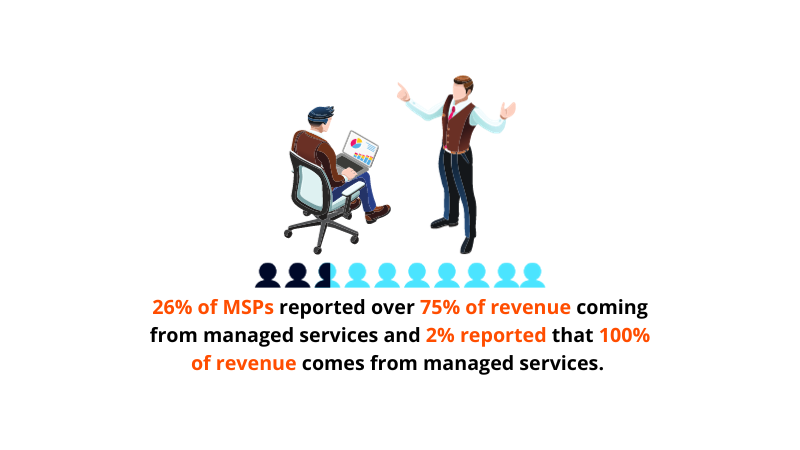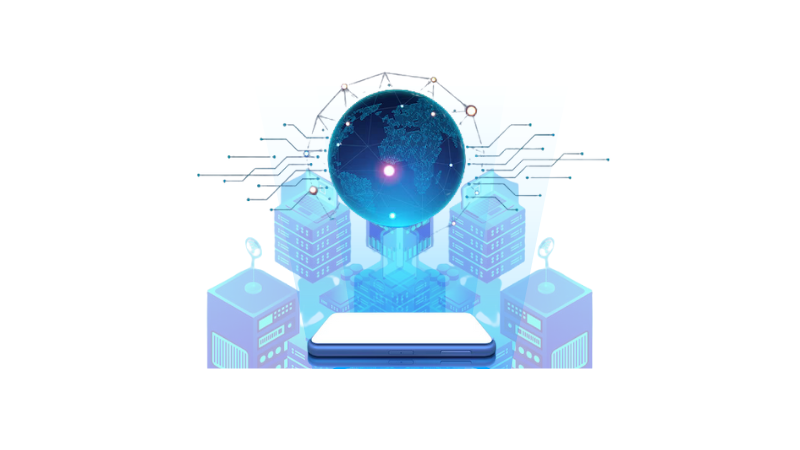Have you ever considered how Managed Service Providers (MSPs) have transformed from just technology facilitators to strategic partners driving business success? That’s right! MSPs have become vital for SMEs and enterprise businesses looking for agile, adaptable, and efficient IT solutions. They have been instrumental in helping both small and large businesses grow. The MSPs industry itself is projected to boom, reaching up to a whopping USD 372.6 billion by 2028, growing at an annual compound rate (CAGR) of 6.2%. From offering consultation services (in recent years) to meeting AI demands, the need for MSPs is evident across various industries.

But, how exactly do these tech innovators reshape the business landscape? Research indicates that companies leveraging MSPs for strategic benefits are 1.6 times faster to market and 2.4 times more innovative than those who focus on cutting costs. This highlights that relying on managed services isn’t just a passing trend but a strategic necessity.
That’s why, understanding the ever-changing trends and growth patterns within the MSP industry is crucial for both service providers and businesses seeking dependable IT services. So, as we step into 2024, let’s dive deeper and uncover the reasons why managed services continue to be a driving force in the IT landscape.
What is MSP and Why Managed Services Matter in 2024?
At the core of being tech-savvy, Managed Service Providers stand as the linchpins for businesses, offering streamlined IT solutions, proactive maintenance, and 24/7 support. Understanding MSPs’ essence and evolving roles in modern enterprises is crucial in comprehending their continued growth.
- AI-Powered Automation: MSPs are harnessing the potential of Artificial Intelligence to automate tasks, optimize operations, and enhance service delivery, thereby enhancing efficiency and scalability.
Related: - Cybersecurity Fortification: With the surge in cyber threats, MSPs are doubling down on robust cybersecurity measures to safeguard their clients’ assets and data, cementing trust and reliability.
- Cloud-Centric Solutions: The widespread adoption of cloud technology continues to influence MSP strategies, emphasizing flexible, scalable, and cost-effective solutions for clients.
- Focus on Vertical Markets: MSPs are increasingly tailoring their services to cater to specific industry verticals, customizing solutions to address unique challenges and demands.
Related: Steer Your Managed IT Firm Away from Lead Generation Mistakes
Managed Service Statistics for 2024
1. Market Expansion:

The MSP market has experienced remarkable growth, indicating a consistent increase of up to 86% in demand and widespread adoption on a global scale. This growth is not just limited to specific regions but is a broader phenomenon, reflecting the rising recognition and reliance on MSPs across various industries. The steady expansion signifies that businesses increasingly understand the benefits of outsourcing IT services to MSPs, driving the market’s continuous upward trajectory.

2. Strategic Alliances:

Collaborations and partnerships between MSPs and technology vendors have surged significantly. These alliances play a crucial role in driving innovation and diversification within the MSP landscape. By joining forces with technology vendors, MSPs can gain access to cutting-edge tools, solutions, and expertise, allowing them to offer more advanced and comprehensive services to their clients. These strategic alliances fuel the evolution of services offered by MSPs up to 75%, contributing to a more competitive and innovative market environment.
Related: Dear Sales Directors: Lead Generation Companies Are Your Friends
3. Client-Centric Approach:

MSPs focusing on understanding and meeting client needs and expectations have experienced rapid growth and fostered unwavering customer loyalty. By prioritizing personalized and tailored services, MSPs ensure that their clients receive solutions specifically designed to address their unique challenges and goals. This client-centric approach not only enhances customer satisfaction but also solidifies long-term relationships, leading to sustained growth and a positive reputation within the market.
MSP Industry Trends 2024
Let’s explore a few Managed Service Provider (MSP) trends and observe how these are progressing into the foreseeable future.
The Transformation of Cloud-Based Services

Cloud technologies have revolutionized business operations by shifting from on-premises servers to cloud-based solutions, offering numerous advantages such as cost-effectiveness, scalability, and flexibility. In fact, businesses across various scales have swiftly embraced cloud services like Google Workspace and Microsoft 365, resulting in a surge in cloud adoption. As organizations migrate their communication and productivity software to the cloud, Managed Service Providers (MSPs) have adapted to aid in managing these transitions, including overseeing cloud Software as a Service (SaaS) environments. Furthermore, cybersecurity has emerged as a vital concern in this transition, prompting MSPs to offer various security services, from antivirus software to comprehensive cybersecurity solutions. Specialized cybersecurity experts within MSPs guide businesses in understanding and fortifying their cybersecurity stance against potential risks in both traditional and cloud environments.
Business Continuity, Disaster Recovery, and Data Analytics

Ensuring uninterrupted business operations has become pivotal, leading MSPs to prioritize business continuity and disaster recovery plans. Managing critical infrastructure, backing up data, and swiftly restoring it have become essential aspects of MSP services. Simultaneously, data analytics has evolved as a crucial offering, allowing your business drowning in data to leverage MSPs for turning this data into actionable insights. The MSP market has swiftly transitioned from basic data analysis to advanced artificial intelligence-driven insights.
Remote Workforce Management and Virtual Desktop Infrastructure

The global shift towards remote work has propelled the need for robust remote monitoring and device management solutions. That’s why MSPs play a crucial role in facilitating a seamless remote connection and enhancing the overall customer experience. Remote workforce management includes overseeing productivity, securing devices, implementing communication tools, providing necessary training, and offering IT support for remote workers. Additionally, Virtual Desktop Infrastructure (VDI) has emerged as a solution allowing remote access to productivity tools hosted on a central server, ensuring accessibility, security, and better data control.
Digital Transformation

Businesses now rely on MSPs to guide them through the digital transformation journey, encompassing updates in web meeting solutions, integration of IoT devices, and providing tangible business value. MSPs assist companies in remaining competitive amidst a rapidly evolving business landscape by ensuring a seamless digital transition and aligning technological advancements with real business needs.
Final Thoughts
The landscape of Managed Service Providers continues to evolve, guided by technological advancements, market demands, and client expectations. By embracing emerging trends and deploying strategic marketing approaches, your MSP business can position itself as a trailblazer, driving growth and innovation in 2024 and beyond.











